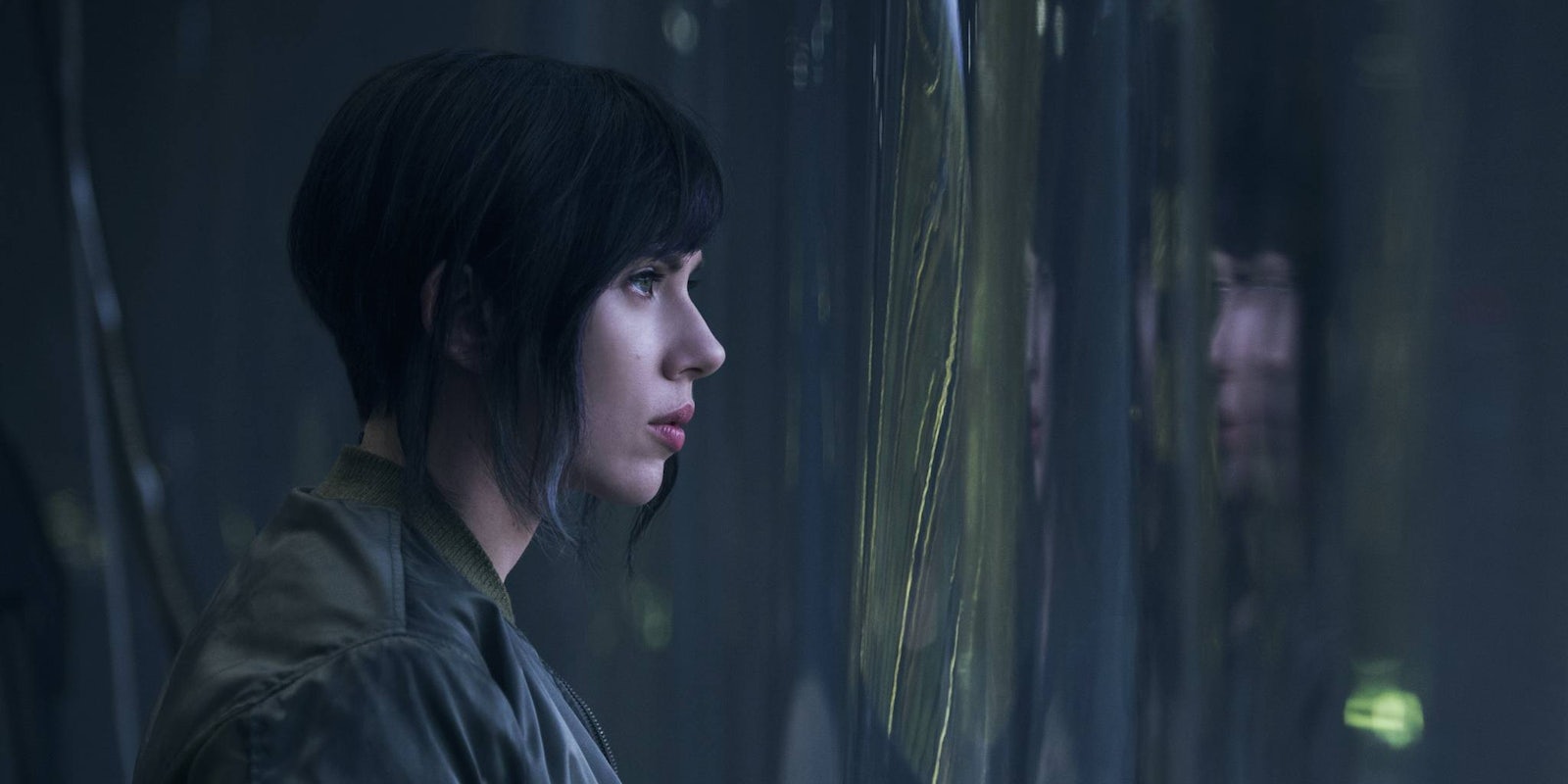One of the producers of the live-action adaptation of the iconic anime Ghost in the Shell is finally speaking up about its choice for the lead role.
Casting Scarlett Johansson as Major Motoko Kusanagi in the cyberpunk movie sparked controversy almost immediately after it was first reported in January 2015. For many fans looking for more diversity and roles for Asian and Asian-American actors, it was yet another example of whitewashing: Motoko Kusanagi is portrayed as Japanese in the anime, but instead she’d be played by a white actress (one who’s now the highest-grossing actress of all time) in the live-action adaptation.
The controversy simmered down for awhile, but it resurged back in April after Paramount Pictures released the first official photo of Johansson in character as Motoko Kusanagi, who was now simply being referred to as “the Major.” A day later, a Screencrush report claimed that Paramount and Dreamworks had run visual tests to make Johansson look more Asian in the movie, sparking even more controversy. Paramount Pictures denied that any visual effects tests were done on Johansson, but many fans became even more outraged. To some, the idea of trying to make Johansson look more Asian rather than cast an Asian actress in the role sounded believable.
Now Steven Paul, a producer on Ghost in the Shell who is also attached to a remake of Lone Wolf and Cub, told BuzzFeed that he believes fans will ultimately come around to Ghost in the Shell after they see it. He noted the “great respect that’s been paid to the manga,” and confirms that Johansson will be called “the Major.”
“I think everybody is going to end up being really happy with it,” Paul told BuzzFeed. “They’re going to be very, very happy with it when they see what we’ve actually done with it, and I don’t think anybody’s going to be disappointed.”
While the pushback against whitewashing has circulated in fan conversations online, some Japanese fans aren’t that upset with casting Johansson in the role. The publisher of Ghost in the Shell said “we never imagined it would be a Japanese actress in the first place.”
A major criticism about the film argues that Ghost in the Shell is very much a Japanese story and casting a white actress for the role erases a vital part of the story.
Ghost In The Shell plays off all of these themes. It is inherently a Japanese story, not a universal one.
— Jon Tsuei (@jontsuei) April 15, 2016
Paul, however, disagrees with the notion that Ghost in the Shell is inherently Japanese, calling it more of an “international world” with people many different nationalities in it.
“I don’t think it was just a Japanese story. Ghost in the Shell was a very international story, and it wasn’t just focused on Japanese; it was supposed to be an entire world,” Paul explained. “That’s why I say the international approach is, I think, the right approach to it.”
Ghost in the Shell is nowhere near the first movie to whitewash its cast, but most of those have been box office failures. In the past few years alone Exodus: Gods and Kings, Gods of Egypt, Pan, and Aloha have all been ripped apart in reviews; a live-action adaptation of Death Note starring Nat Wolff and Margaret Qualley has already garnered similar controversy. It also hasn’t historically worked out well when adapting beloved anime and Asian-influenced shows like Avatar: The Last Airbender and Dragon Ball.
H/T BuzzFeed


